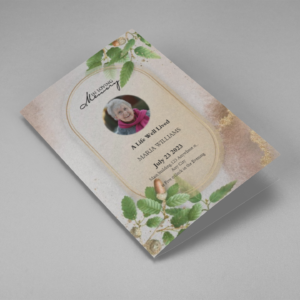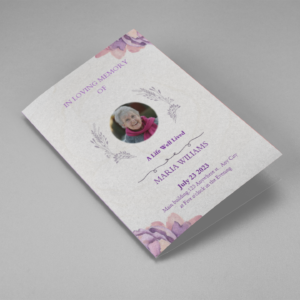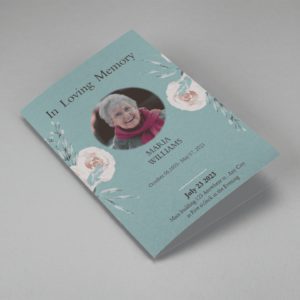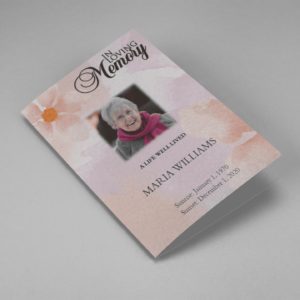An obituary serves as a way to honor and celebrate the life of a loved one who has passed away. It provides essential information, highlights their accomplishments, and shares their story with others. Writing an obituary can be a challenging yet rewarding task, as it allows you to reflect on the life of the deceased and offer a meaningful tribute to their memory.
What is an Obituary?
An obituary is a formal notice of someone’s death, typically published in a newspaper or online. It usually includes important details about the deceased, such as their full name, age, date of birth, date of death, and funeral arrangements. Beyond the basic facts, an obituary may also include a brief biography, a summary of their achievements, and the surviving family members.
Obituaries serve as both a way to inform others of the death and to honor the deceased. In many cultures, it is a tradition to publish obituaries to pay respect and inform the community of a loss. A well-crafted obituary is not only a practical tool but also an important part of the grieving process.
Key Elements of a Good Obituary
While every obituary is unique and personal, there are several key elements that every good obituary should include. These components provide a well-rounded picture of the deceased and ensure that their legacy is remembered.
- Full Name and Age
The obituary should start by stating the deceased’s full name (including any maiden name, if applicable) and their age at the time of death. It’s also common to include their place of residence.Example:
“John Edward Doe, 78, passed away peacefully on January 15, 2025, at his home in Springfield.” - Date and Place of Birth
Providing the birth date and location helps to contextualize the person’s life. It is also important for genealogy purposes and can offer insight into their background.Example:
“John was born on July 22, 1946, in Springfield, Illinois, to the late Robert and Helen Doe.” - Details of Death
While this section is sensitive, it is important to briefly mention the cause of death or any circumstances surrounding it, if appropriate. This information can help people understand the nature of the loss.Example:
“John passed away following a lengthy battle with cancer, surrounded by his loved ones.” - Family Information
An obituary often includes the names of immediate family members, both those who are surviving and those who predeceased the deceased. This helps the community recognize the surviving family and shows the impact of the loss on their loved ones.Example:
“John is survived by his beloved wife, Mary; his children, Susan and Michael; and his five grandchildren, all of whom he cherished deeply. He was preceded in death by his parents and his sister, Margaret.” - Personal Biography and Achievements
This section allows for a more personalized touch. It’s where you can share the life story of the deceased. You may include details about their education, career, hobbies, passions, and any notable achievements or milestones.Example:
“John was a dedicated educator for over 40 years, teaching history at Springfield High School. He was known for his passion for history and his ability to inspire his students. In his spare time, John enjoyed gardening, reading historical novels, and spending time with his grandchildren. He was also an active member of his local church and volunteered for several community projects.” - Funeral and Memorial Information
One of the key purposes of an obituary is to inform others of the funeral arrangements or memorial services. This section should include the date, time, and location of the service, as well as any details regarding visitation or special requests.Example:
“A memorial service will be held at Springfield Memorial Chapel on January 20, 2025, at 2:00 PM. Friends and family are invited to attend. In lieu of flowers, donations may be made to the Springfield Cancer Research Foundation in John’s memory.” - Special Tributes or Requests
Some families may choose to include specific requests or messages. For instance, you may wish to express gratitude to caregivers, or you may ask for charitable donations in lieu of flowers. It’s also a space where you can include quotes, religious messages, or anything meaningful.Example:
“The family would like to extend their heartfelt gratitude to the staff at Springfield Hospice for their compassionate care during John’s final days.”
Tips for Writing a Meaningful Obituary
Writing an obituary can be an emotional experience, but it’s also an opportunity to reflect on the good memories and qualities of the deceased. Here are a few tips for writing a thoughtful and memorable obituary:
- Be Specific and Personal
While it’s important to include key facts and details, don’t be afraid to make the obituary personal. Share anecdotes, favorite quotes, or specific traits that made the person special. These details make the obituary feel more authentic and reflective of the individual. - Consider the Tone
The tone of the obituary should reflect the personality of the deceased. Some obituaries may be formal and somber, while others might have a more light-hearted or celebratory tone, especially if the person had a joyful and humorous nature. Be sure to strike a balance between respecting the solemnity of the occasion and honoring the unique spirit of the individual. - Focus on Positive Memories
While obituaries should reflect the realities of a person’s life, try to emphasize the positive aspects. A good obituary celebrates the individual’s life and their impact on others. Focus on what made them special and how they will be remembered. - Seek Help from Family and Friends
If you’re unsure where to begin, ask other family members or friends to contribute. They may have stories or insights that can help paint a fuller picture of the deceased. Collaborating with others can ease the writing process and ensure that the obituary captures different facets of the individual. - Proofread and Edit
After writing the obituary, take the time to read it through and make necessary revisions. A well-written obituary should be clear, concise, and free from errors. Make sure the important details, such as dates and locations, are accurate.
Example of a Well-Written Obituary
To provide a clearer example, here’s a full obituary:
“John Edward Doe, 78, passed away peacefully on January 15, 2025, at his home in Springfield. Born on July 22, 1946, in Springfield, Illinois, to the late Robert and Helen Doe, John was a beloved husband, father, grandfather, and friend. John is survived by his wife, Mary; his children, Susan and Michael; and five grandchildren, all of whom he cherished deeply. He was preceded in death by his sister, Margaret.
John was a dedicated educator for over 40 years, teaching history at Springfield High School. His students remember him for his engaging lessons and his passion for history. Outside of work, John enjoyed gardening, reading historical novels, and spending time with his family. He was a longtime member of St. Peter’s Church and volunteered for local community projects. John will be remembered for his kindness, his sense of humor, and his deep love for those around him.
A memorial service will be held at Springfield Memorial Chapel on January 20, 2025, at 2:00 PM. In lieu of flowers, the family requests donations to the Springfield Cancer Research Foundation. The family would like to express their gratitude to Springfield Hospice for their compassionate care.”
Writing a good obituary requires sensitivity and thoughtfulness. It’s an opportunity to not only inform others of a loss but also to honor the life of a loved one in a meaningful way. By including the key elements outlined above and personalizing the obituary, you can create a lasting tribute to the individual’s memory. With a bit of time and reflection, the obituary will serve as a fitting farewell to someone who was deeply loved and will never be forgotten.
Funeral Obituary Templates
-
Searching for a Oak Leaf With Gold Oval Frame Half Page Funeral Program that is easy to print and amass and has a cutting-edge look? The Oak Leaf With Gold Oval Frame Half Page Funeral Program is the Perfect decision because it measures 8.5”x 5.5”.
- No Limitation on Content, Edit anything
- Edit anytime – unlimited revisions even after purchased
- Get a printable PDF downloaded to get it printed on your own.
-
Searching for a Brown and White Classic Funeral Program Half Page Program that is easy to print and amass and has a cutting-edge look? The Brown and White Classic Funeral Program Half Page Program is the Perfect decision because it measures 8.5”x 5.5”.
- No Limitation on Content, Edit anything
- Edit anytime – unlimited revisions even after purchased
- Get a printable PDF downloaded to get it printed on your own.
-
Searching for a Purple Elegant Watercolor Half Page Funeral Program Template that is easy to print and amass and has a cutting-edge look? The Purple Elegant Watercolor Half Page Funeral Program Template is the Perfect decision because it measures 8.5”x 5.5”.
- No Limitation on Content, Edit anything
- Edit anytime – unlimited revisions even after purchased
- Get a printable PDF downloaded to get it printed on your own.
-
Searching for a Cream and Green Photo Obituary Half Page Program that is easy to print and amass and has a cutting-edge look? The Cream and Green Photo Obituary Half Page Program is the Perfect decision because it measures 8.5”x 5.5”.
- No Limitation on Content, Edit anything
- Edit anytime – unlimited revisions even after purchased
- Get a printable PDF downloaded to get it printed on your own.
-
Searching for a Cream Simple Elegant Photo Church Half Page Program that is easy to print and amass and has a cutting-edge look? The Cream Simple Elegant Photo Church Half Page Program is the Perfect decision because it measures 8.5”x 5.5”.
- No Limitation on Content, Edit anything
- Edit anytime – unlimited revisions even after purchased
- Get a printable PDF downloaded to get it printed on your own.
-
Searching for a Samovar Silver Half Page Funeral Program Template that is easy to print and amass and has a cutting-edge look? The Samovar Silver Half Page Funeral Program Template is the Perfect decision because it measures 8.5”x 5.5”.
- No Limitation on Content, Edit anything
- Edit anytime – unlimited revisions even after purchased
- Get a printable PDF downloaded to get it printed on your own.
-
Searching for an Elegant Beige Half Page Funeral Program Template that is easy to print and amass and has a cutting-edge look? The Elegant Beige Half-Page Funeral Program Template is the Perfect decision because it measures 8.5”x 5.5”.
- No Limitation on Content, Edit anything
- Edit anytime – unlimited revisions even after purchased
- Get a printable PDF downloaded to get it printed on your own.
-
Searching for a White Floral Pro Half Page Funeral Program Template that is easy to print and amass and has a cutting-edge look? White Floral Pro Half Page Funeral Program Template is the Perfect decision because it measures 8.5”x 5.5”.
- No Limitation on Content, Edit anything
- Edit anytime – unlimited revisions even after purchased
- Get a printable PDF downloaded to get it printed on your own.
-
Searching for a Grey and Burgundy Elegant Half Page Funeral Program Template that is easy to print and amass and has a cutting-edge look? Grey and Burgundy Elegant Half Page Funeral Program Template is the Perfect decision because it measures 8.5”x 5.5”.
- No Limitation on Content, Edit anything
- Edit anytime – unlimited revisions even after purchased
- Get a printable PDF downloaded to get it printed on your own.
-
Searching for a Soft Green and Grey Minimalist Floral Half Page Funeral Program Template that is easy to print and amass and has a cutting-edge look? Soft Green and Grey Minimalist Floral Half Page Funeral Program Template is the Perfect decision because it measures 8.5”x 5.5”.
- No Limitation on Content, Edit anything
- Edit anytime – unlimited revisions even after purchased
- Get a printable PDF downloaded to get it printed on your own.
-
Searching for a Gray Elegant Oval Frame Half Page Funeral Program Template that is easy to print and amass and has a cutting-edge look? Gray Elegant Oval Frame Half Page Funeral Program Template is the Perfect decision because it measures 8.5”x 5.5”.
- No Limitation on Content, Edit anything
- Edit anytime – unlimited revisions even after purchased
- Get a printable PDF downloaded to get it printed on your own.
-
Searching for a Blue Organic Minimal Half Page Funeral Program Template that is easy to print and amass and has a cutting-edge look? Blue Organic Minimal Half Page Funeral Program Template is the Perfect decision because it measures 8.5”x 5.5”.
- No Limitation on Content, Edit anything
- Edit anytime – unlimited revisions even after purchased
- Get a printable PDF downloaded to get it printed on your own.
-
Searching for a Pink and Orange Watercolour Half Page Funeral Program Template that is easy to print and amass and has a cutting-edge look? Pink and Orange Watercolour Half Page Funeral Program Template is the Perfect decision because it measures 8.5”x 5.5”.
- No Limitation on Content, Edit anything
- Edit anytime – unlimited revisions even after purchased
- Get a printable PDF downloaded to get it printed on your own.
-
Searching for a Pink Floral Paper Half Page Funeral Program Template that is easy to print and amass and has a cutting-edge look? Pink Floral Paper Half Page Funeral Program Template is the Perfect decision because it measures 8.5”x 5.5”.
- No Limitation on Content, Edit anything
- Edit anytime – unlimited revisions even after purchased
- Get a printable PDF downloaded to get it printed on your own.
Funeral Programs : Helping Videos
Frequently Asked Question On Good Example Of Obituary
How long should an obituary be?
An obituary can range from a short paragraph to a full-page tribute, depending on the level of detail. Ideally, it should be between 200-500 words, providing a meaningful summary of the person’s life while remaining concise.
Can I write a humorous obituary?
Yes! If the deceased had a great sense of humor and would have appreciated it, a lighthearted obituary can be a wonderful way to celebrate their life. However, it should still be respectful and appropriate.
Who usually writes the obituary?
The obituary is typically written by a close family member, such as a spouse, child, or sibling. Funeral homes may also help draft an obituary, and some families seek the assistance of a professional writer.
Can I include funeral details in the obituary?
Yes, the obituary should include information about the date, time, and location of the funeral, memorial, or celebration of life service.















